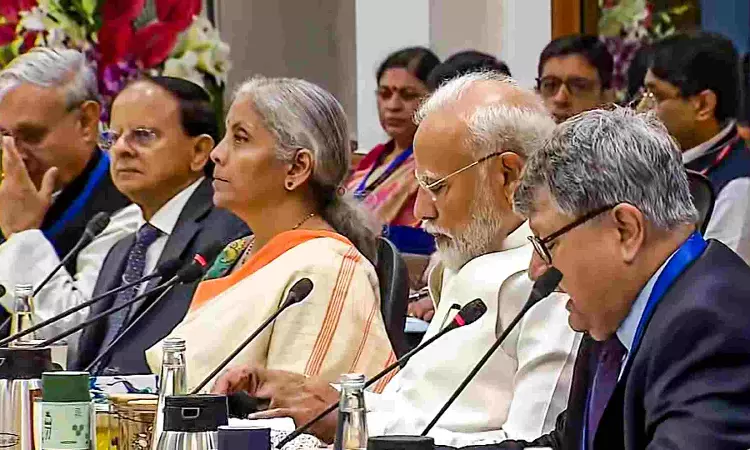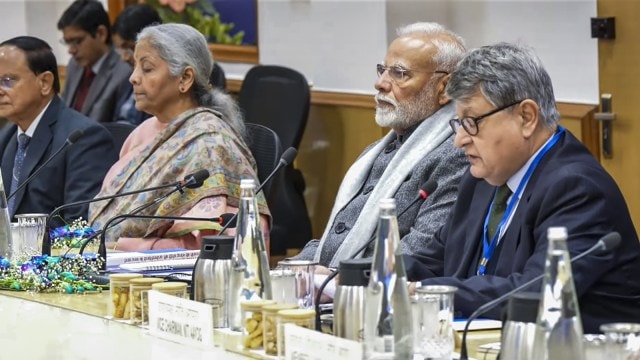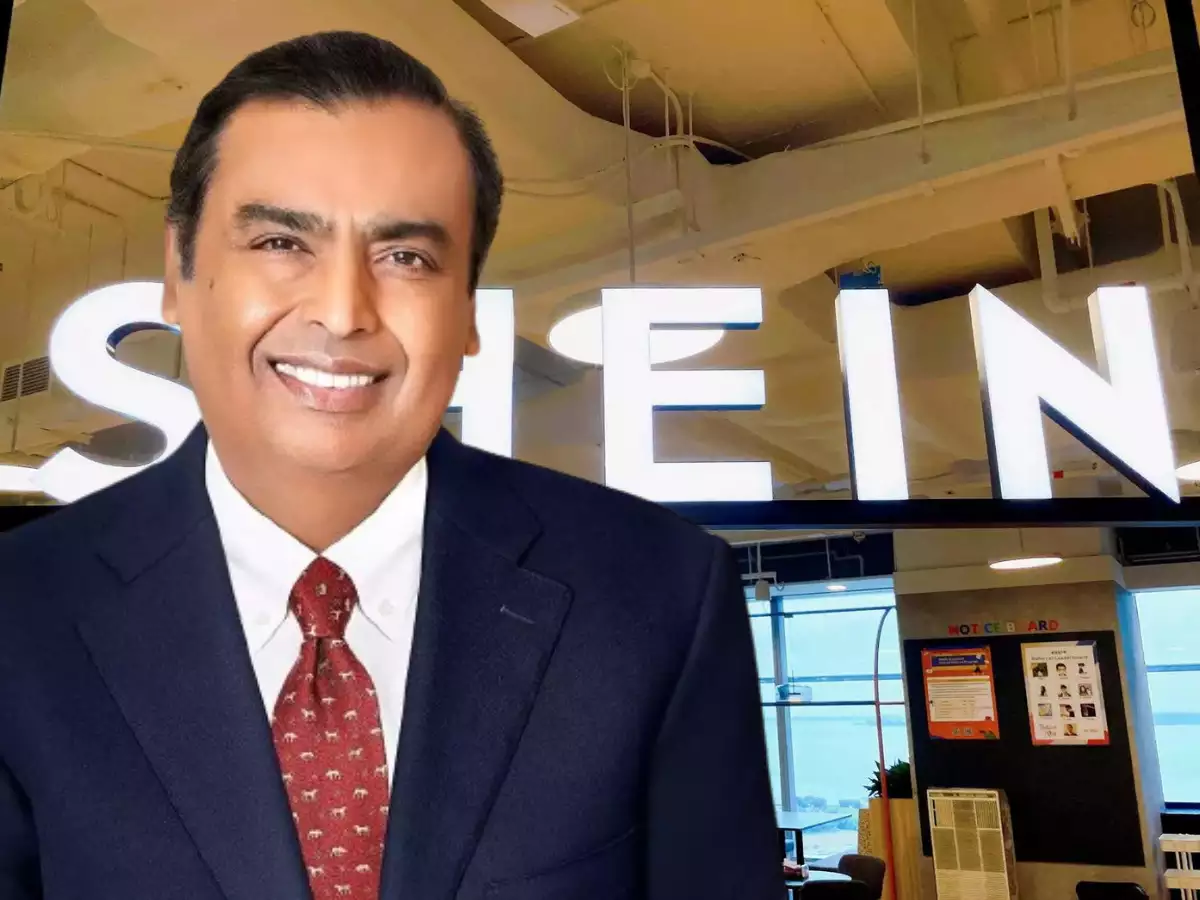Ahead of Budget, PM Modi calls for deeper and bolder reforms for higher growth

India’s GDP rose by 5.4% in July-September, the lowest rate in seven quarters, as weaker expansions in manufacturing and consumption hurt the economy.
Prime Minister Narendra Modi and Finance Minister Nirmala Sitharaman at the meeting with economists, Tuesday. (PTI)
With just over a month left for Union Budget 2025-26, Prime Minister Narendra Modi told economists Tuesday that deeper reforms were required for the economy to grow faster.
In a meeting organised by the Niti Aayog, the Prime Minister stressed the need to undertake bold new reforms and invited economists’ suggestions. The meeting comes amid the slowing of economic growth, tepid urban consumption, persisting external volatility, and the threat of high tariffs, which are further impeding world trade and stoking global inflation.
India’s GDP rose by 5.4% in July-September, the lowest rate in seven quarters, as weaker expansions in manufacturing and consumption hurt the economy.
Sources said the economists’ ideas ranged from land and labour reforms to states taking the lead in easing regulations that constrain businesses. They also discussed the pace of fiscal consolidation, the need to lower personal income tax rates, and tax incentives for companies employing women.





